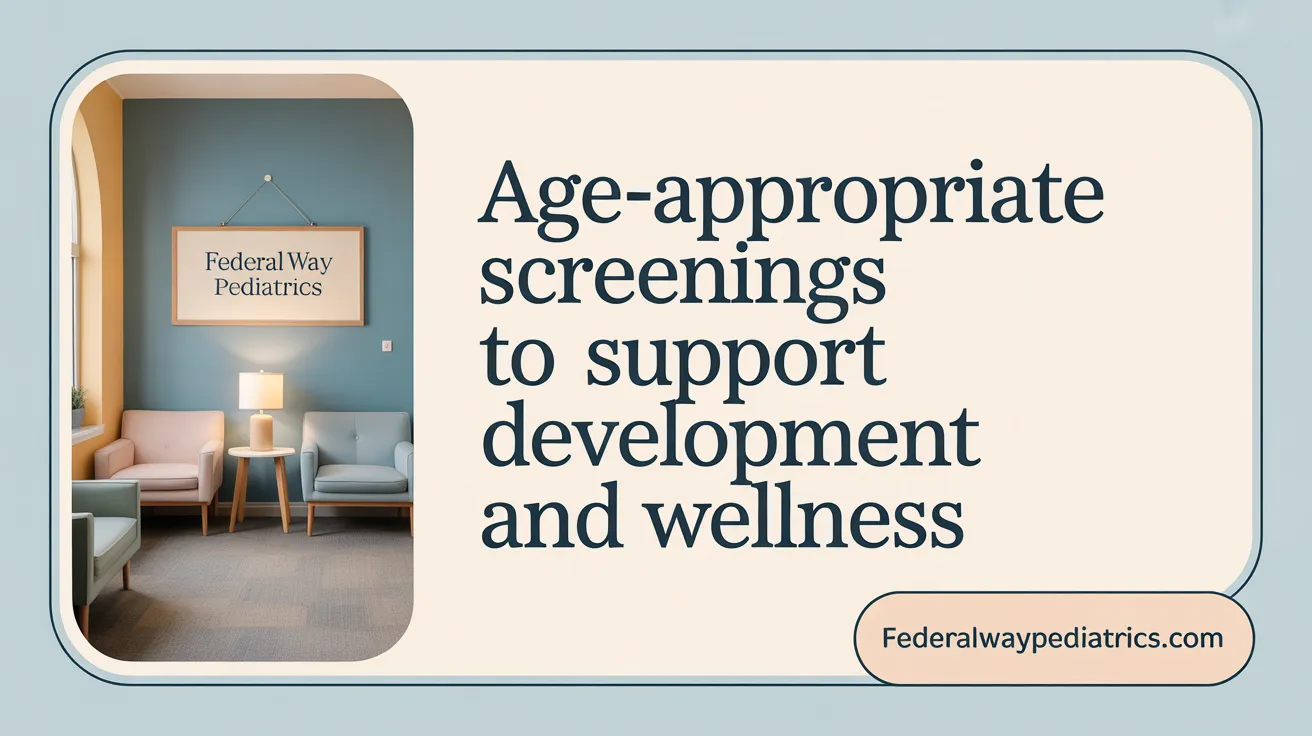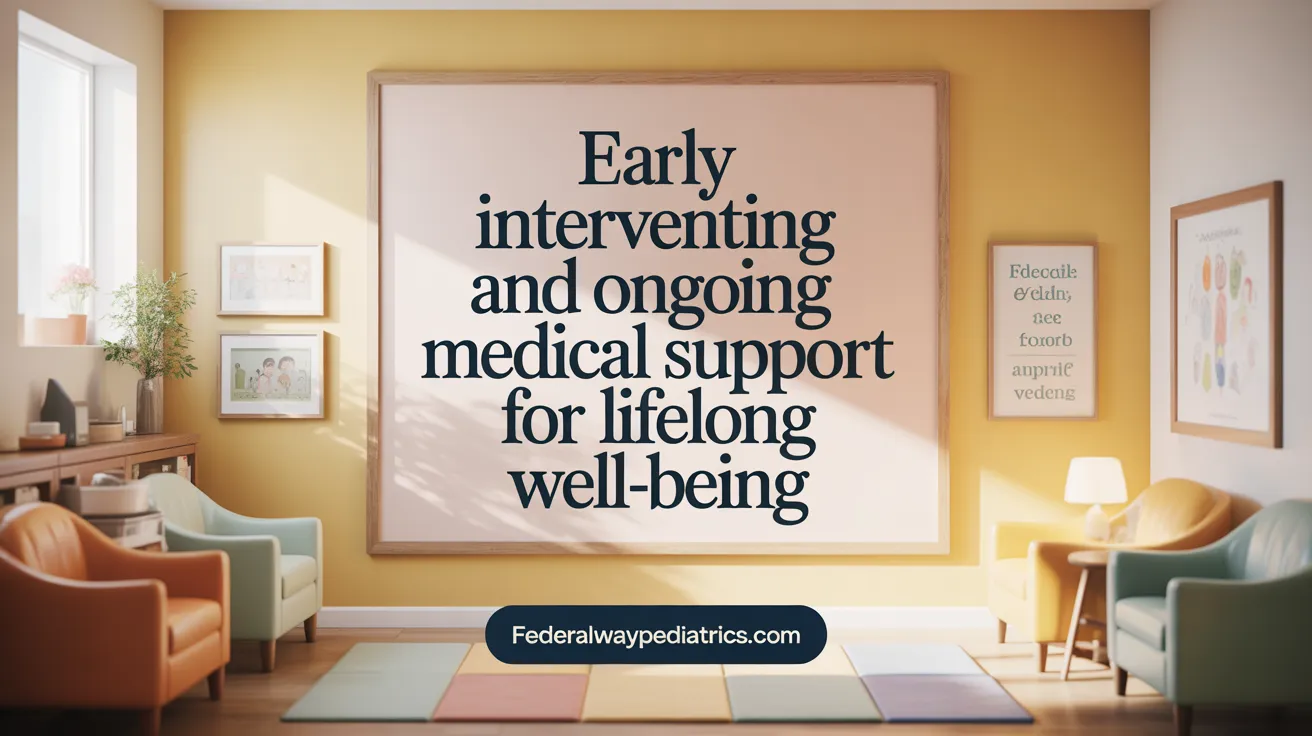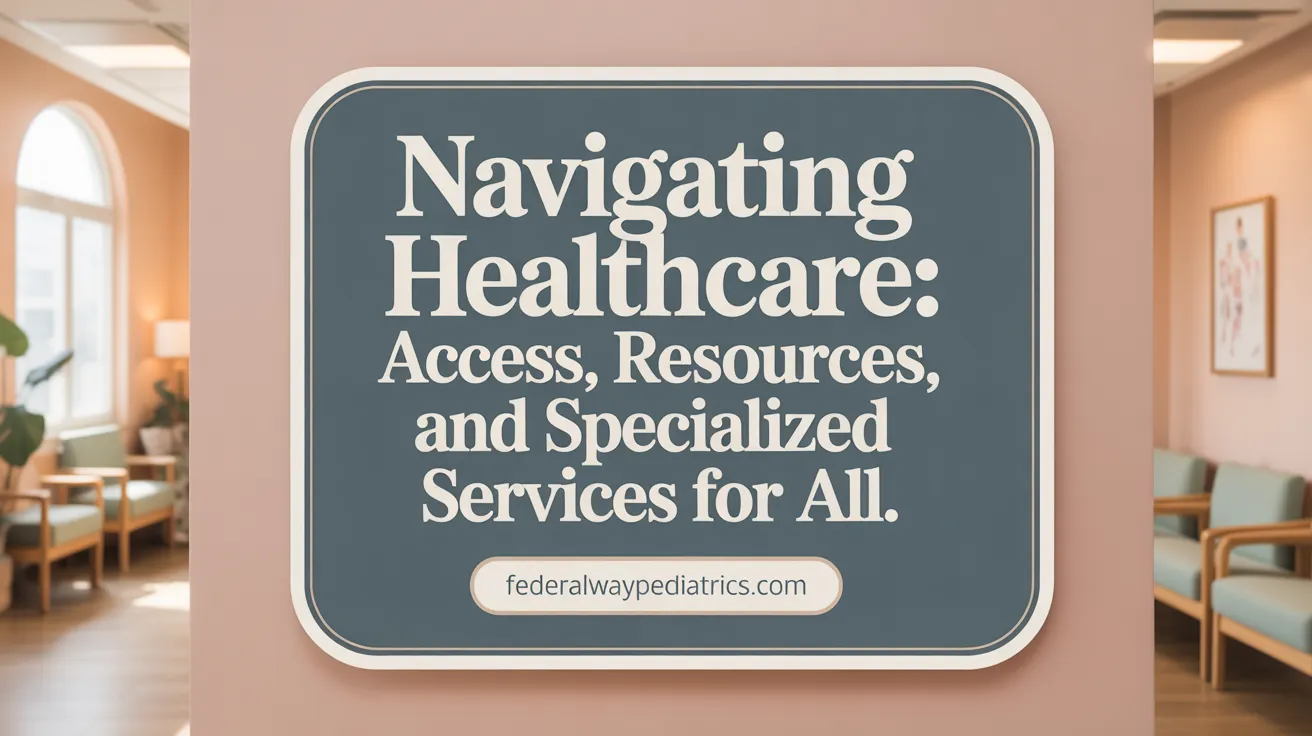Understanding the Healthcare Journey for Children with Down Syndrome
Families of children diagnosed with Down syndrome face a unique set of healthcare needs and challenges. Accessing timely, comprehensive medical care and supportive services is crucial to ensure these children thrive throughout their lives. This article explores the essential healthcare guidelines, treatments, screenings, and resources designed to empower families and caregivers in navigating the complex healthcare landscape associated with Down syndrome.
Recommended Healthcare Guidelines for Children with Down Syndrome

What are the recommended healthcare guidelines for children with Down syndrome?
Children with Down syndrome require a structured approach to health monitoring and development screenings. The American Academy of Pediatrics (AAP) provides updated guidelines, last published in May 2022, emphasizing comprehensive and age-specific care.
Regular development assessments help track motor skills, speech, and social development, complemented by vigilant monitoring for common health issues. These include congenital heart problems, thyroid dysfunction, hearing and vision impairments, sleep apnea, and immune system concerns.
Healthcare providers recommend specific screenings: thyroid function tests should be conducted annually, audiology evaluations every two years, and eye exams like ophthalmologic assessments also every two years. These checks aim to catch conditions such as keratoconus and cataracts early.
Early intervention therapies—such as speech therapy, occupational therapy, and physical therapy—are crucial for supporting development and improving quality of life. Additionally, ongoing assessments for hematologic abnormalities and autoimmune diseases, including celiac disease, are essential.
Multidisciplinary management is vital. This involves collaboration among pediatricians, specialists like cardiologists and endocrinologists, therapists, and educators to address the broad spectrum of health and developmental needs.
Genetic counseling for families provides vital support and information about the condition's genetic aspects and recurrence risks.
Overall, adhering to these guidelines helps manage health issues proactively, encouraging children with Down syndrome to thrive and reach their full potential.
Medical Management and Treatment Approaches for Children with Down Syndrome

What treatments and medical management strategies are available for children with Down syndrome?
Children with Down syndrome benefit from comprehensive, multidisciplinary treatment strategies designed to support their physical health, development, and well-being. This approach involves a team of healthcare professionals working together to address the various health conditions associated with the condition.
A primary focus is on managing health issues such as congenital heart defects, thyroid problems, hearing and vision impairments, and gastrointestinal concerns. Regular screenings and specialist consultations ensure these conditions are identified early and treated appropriately. For example, children often undergo routine thyroid function tests, hearing evaluations every two years, and eye exams to monitor for common issues like cataracts or strabismus.
Early intervention services play a crucial role in fostering development. Initiated shortly after birth and continuing through age three, these services include therapies such as physical therapy to improve motor skills, speech therapy to enhance communication abilities, and occupational therapy to promote independence in daily activities. These therapies are tailored to each child’s specific needs, helping to optimize their developmental trajectory.
Educational support through special education programs and individualized education plans (IEPs) are vital for maximizing learning potential. Assistive devices, including hearing aids, communication aids, and adaptive tools, further aid children in learning and daily functioning.
Managing health conditions is an ongoing priority. Medical management may involve medications for thyroid issues, surgical interventions for heart conditions, and devices for sleep apnea. Behavioral and emotional support, such as social skills training and counseling, contribute to improved social integration and emotional resilience.
Throughout their lives, individuals with Down syndrome require continuous medical oversight. Regular check-ups coordinated by a primary care provider and specialists ensure that health concerns are addressed promptly. This proactive, team-based approach helps individuals lead healthier, more fulfilling lives, emphasizing early diagnosis, tailored therapies, and ongoing support to meet each person’s unique needs.
Health Screenings Across the Lifespan: Proactive Monitoring for Down Syndrome
What health screenings are recommended throughout the lifespan of a person with Down syndrome?
People with Down syndrome require regular health screenings to catch and manage common health challenges early. These screenings vary at different stages of life, emphasizing proactive healthcare to enhance quality of life.
Screenings in infancy and childhood
In infancy, important assessments include checks for congenital heart defects through echocardiograms and hearing tests. Vision screenings and eye exams are also recommended every two years to identify issues like cataracts or strabismus. Thyroid function tests are essential since hypothyroidism is common. Additionally, screening for celiac disease and checking for atlantoaxial instability—an unusual movement between the first two neck bones—are critical.
Early childhood involves ongoing monitoring of growth, development, and behavior. Vaccinations should be kept up to date, and developmental therapies like speech and occupational therapy are often introduced.
Routine assessments in adolescence and adulthood
As children with Down syndrome grow into teenagers and adults, the focus shifts toward managing age-related health concerns. Annual evaluations include testing thyroid function, blood counts to monitor for leukemia, and sleep studies for conditions like sleep apnea. Regular vision and hearing assessments continue, alongside assessments for obesity, mental health, and behavioral issues.
Women should start cervical and breast cancer screenings at the recommended ages, with mammograms beginning around age 40. Men and women alike should also be monitored for diabetes and osteoporosis.
Specific tests such as thyroid, hearing, vision, and cardiac
Thyroid function tests are recommended at least once a year throughout life. Hearing assessments should occur every two years, while ophthalmologic exams are advised biennially to detect and treat eye conditions early.
Cardiac evaluations, including echocardiograms, are essential in infancy and may be needed periodically later in life, especially if congenital heart disease was present. These tests help ensure timely intervention for cardiovascular health.
Preventive health screenings including cancer and Alzheimer’s disease
Preventive screenings expand as individuals age. Women should undergo cervical cancer screening (Pap smears) regularly, and routine mammograms are recommended starting at age 40.
In older adults, screening for Alzheimer’s disease becomes essential because of the increased risk. Additionally, evaluations for osteoporosis and diabetes help prevent serious complications.
Guidelines from national health organizations
These recommended screenings are supported by guidelines from organizations like the National Down Syndrome Society and the American Academy of Pediatrics. They emphasize the importance of early detection and continuous monitoring to address health issues promptly.
Ongoing research and updated guidelines aim to improve lifespan and health outcomes, ensuring individuals with Down syndrome live healthier, more independent lives.
Navigating Healthcare Options and Access for Families of Children with Down Syndrome
 Managing healthcare for children with Down syndrome involves understanding a variety of medical services, support systems, and policies designed to promote their health and development.
Managing healthcare for children with Down syndrome involves understanding a variety of medical services, support systems, and policies designed to promote their health and development.
Families and caregivers should partner closely with healthcare providers to create personalized care plans. These plans address ongoing medical issues such as congenital heart defects, hearing and vision problems, thyroid concerns, and developmental needs. Regular check-ups and screenings—such as annual thyroid tests, eye exams every two years, and hearing assessments—are crucial for early detection and intervention.
Utilizing insurance and public benefits programs can ease access to necessary healthcare. Medicaid, including programs like MassHealth, provides coverage for low- and medium-income families, ensuring children with Down syndrome receive comprehensive services. In many states, children with disabilities are automatically enrolled in Medicaid once they qualify for Supplemental Security Income (SSI) at age 18.
Specialized clinics and multidisciplinary care teams play a vital role in managing health needs. For example, the Down Syndrome Clinic at Mass General Brigham offers expert assessments, screenings, and care coordination. The Children's Hospital of Philadelphia’s Trisomy 21 Program provides comprehensive evaluations and support from birth through adulthood, fostering smooth transition to adult healthcare.
Community organizations and advocacy groups are invaluable resources for support, education, and social activities. Groups like the Down Syndrome Association of Minnesota and local support networks offer parent training, informational workshops, and peer connections.
Remaining informed about legislative policies affecting healthcare coverage is also critical. Legislation such as the One Big Beautiful Bill Act aims to expand access to comprehensive healthcare services for individuals with Down syndrome, ensuring they receive the attention and support they need throughout life.
Finally, personalized care strategies include regular developmental assessments, participation in early intervention programs, and therapies like speech, occupational, and physical therapy. Access to assistive devices such as hearing aids and communication tools further supports learning and daily functioning.
By embracing a coordinated approach—leveraging insurance, specialized clinics, community resources, and informed advocacy—families can secure tailored, effective healthcare that promotes the health, independence, and quality of life for children with Down syndrome.
Additional Resources:
| Program/Organization | Services Offered | Notes |
|---|---|---|
| MassHealth | Medical coverage for low- and medium-income families | Automatic enrollment at age 18 for SSI recipients |
| Down Syndrome Clinic (Mass General Brigham) | Screening, health management, care coordination | Specialized multidisciplinary team |
| Trisomy 21 Program (CHOP) | Medical, developmental, and psychosocial care | Family education and transition support |
| Down Syndrome Association | Parent support, advocacy, education | Community-based programs and social activities |
Search Strategies:
Support Services and Programs Enhancing Quality of Life for Families
What support services and resources are available to families with children with Down syndrome?
Families navigating the care of children with Down syndrome can access a multitude of support services and resources designed to promote their child's well-being and development. National organizations like the National Down Syndrome Society (NDSS) partner with over 250 local groups across the U.S. to provide a network of supportive programs.
These programs include parent support groups, which offer emotional encouragement and practical advice, and family meetings that foster community engagement. Support options extend to siblings and grandparents, enriching the entire family experience. Recreational activities and advocacy events, such as Buddy Walk®s, create opportunities for social inclusion and raising awareness.
In addition, the Down Syndrome Nutrition and Support Coalition (NDSC) and regional groups offer comprehensive networks of early intervention services, educational guidance, and emotional support. Resources like the Virginia Down Syndrome Association (VDSA) and the National Association for Down Syndrome (NADS) deliver educational programs, parent mentorship, webinars, and community participation.
Many of these services are accessible through online platforms, social media support groups, and directories of local organizations, ensuring families can find assistance regardless of their location. These supports play a vital role at every stage—whether during early childhood, school years, or transitioning into adulthood—helping families manage medical needs, enhance learning, and encourage independence.
| Support Service Type | Offered Resources | Target Population |
|---|---|---|
| Parent Support Networks | Support groups, advocacy events | Parents, guardians, families |
| Early Intervention & Education | Therapy programs, educational support | Children from birth to age 3 |
| Respite and Family Services | Respite care, family-centered services | Families caring for children |
| Transition to Adulthood Programs | Workshops, adult healthcare resources | Young adults and adults with Down syndrome |
| Medical Condition Management Resources | Regional clinics, specialist directories | All ages with Down syndrome |
Accessing these resources can significantly improve quality of life, providing families with the tools needed to support their child's health, education, and social integration at every stage of life.
Empowering Families Through Informed Healthcare Access
Access to comprehensive healthcare, tailored support services, and community resources plays a pivotal role in enhancing the well-being of children with Down syndrome and their families. Adhering to evidence-based guidelines, engaging in proactive health screenings, and collaborating with multidisciplinary care teams enable children to reach their fullest potential while managing associated health conditions effectively. By navigating insurance options, specialized clinics, and advocacy networks, families can secure a continuum of care that supports development from infancy through adulthood. Continued research and dedicated programs promise further improvements in lifespan and quality of life, underscoring the importance of informed, collaborative care for this vibrant community.
References
- Children with Down Syndrome: Health Care Information for ...
- Caring for a Child With Down Syndrome
- Resource Guide Families of Children with Down Syndrome
- Healthcare Guidelines
- Children and Youth with Special Health Care Needs
- What are common treatments for Down syndrome?
- Trisomy 21 Program
- Living with Down Syndrome | Birth Defects
